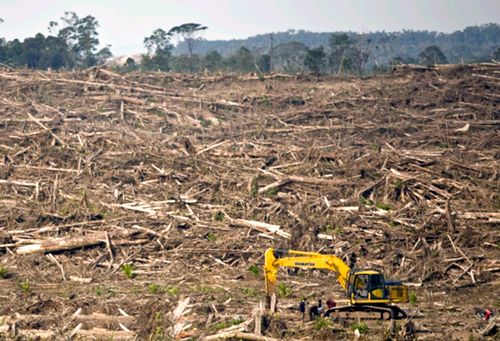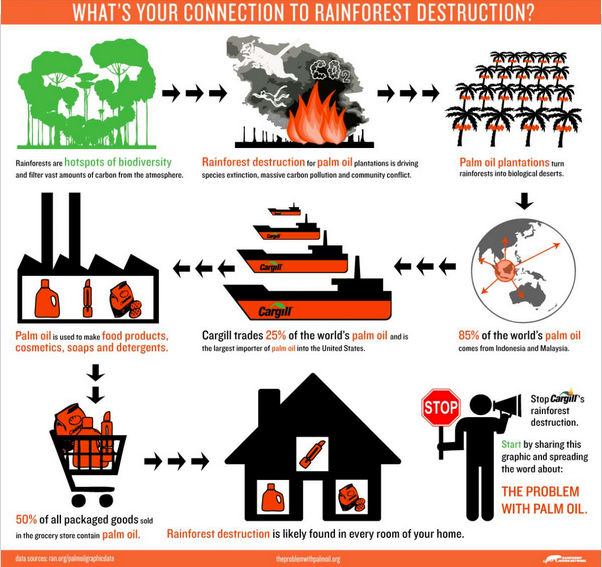

People who work to save rainforests and protect wildlife are urging consumers to refrain from buying Halloween candy made with palm oil.
Why?
For one thing, palm oil producers in Indonesia and Malaysia rely on forced and child labor and Indonesia’s palm oil industry is rife with human-rights abuses.
For another, companies clear tropical rainforests to plant their oil palm trees, which obliterates the homes of endangered animals like orangutans, pygmy elephants and Sumatran tigers.
Palm oil is used in more than half of all manufactured goods, including candy and even Girl Scout cookies. You can avoid buying candy made with palm oil by shopping from this list of manufacturers who have pledged to use certified sustainable palm oil. Manufacturers of palm-oil-free candy are featured in another list from the El Paso Zoo.
Or consider handing out alternatives to the traditional Halloween treats such as organic juice boxes or trial-size bags of veggie chips.
Check out the graphic below from the Rainforest Action Network that explains how palm oil plantations are destroying the rainforests.

 233k
233k  41k
41k  Subscribe
Subscribe 


